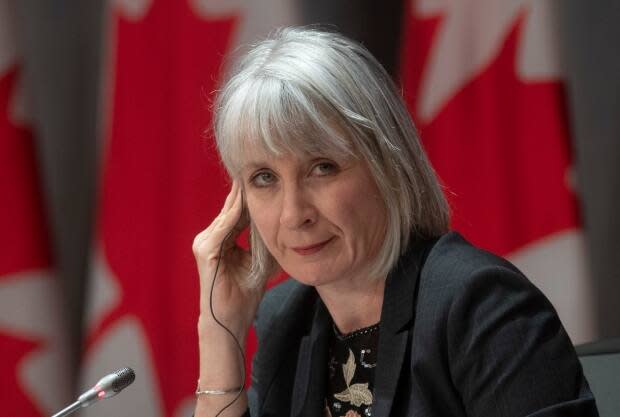Retired MP calls for Ottawa to rethink rigid compensation rules for thalidomide victims
Retired MP Bill Casey is hoping his former colleagues in government will change the rigid rules that people must meet to qualify for a compensation program for thalidomide survivors.
Casey chaired the House of Commons standing committee on health in 2017 when, after hearing from thalidomide victims and experts, it recommended government "err on the side of compassion" with its new 2019 compensation program.
"Canada should own up to the mistake," he said of Ottawa's decision to approve the dangerous drug between 1959 and 1962.
"You cannot have a strict set of rules that you have to meet on something that happened 60 years ago … the government has to be flexible on this."
New program excludes many
Introduced in 2019, the Canadian Thalidomide Survivors Support Program was designed in part to help the 167 Canadians who were rejected from a 2015 program because they didn't have the medical records to prove their mothers took the drug.

Many of those who were turned down, including Noëlla Hébert of Saint-Louis de Kent, have sworn affidavits from their mothers, along with medical reports that all point to the drug as the cause of their malformed and missing limbs.
Hébert was born in 1968 without a left arm and with severe malformations to her right arm and both of her legs.
The strict rules of the 2015 program only allowed written prescriptions or a doctor's report as adequate proof of thalidomide exposure.
Hébert was initially hopeful when the new program was announced in 2019 but devastated when she read step one of the eligibility requirements.
This time in order to qualify, you must have been born between Dec. 3, 1957, and Dec. 21, 1967. At least 40 people from across the country were born outside those dates. Hébert was born five weeks too late.

To Casey, that rigid date range is not in the spirit of what his committee recommended.
"Each time the government tries to come up with a program, they come up with a very specific list of criteria you must meet and that does not work," he said.
'Just playing with time'
Hébert called the date range "ridiculous," and told CBC she feels like the government is "just playing with time" and hoping victims will die before they get paid.
Casey said he understands why Hébert and other claimants feel that way, but he doesn't think that government is "waiting them out."
"I don't believe that for a second. But I do believe that it's a mistake not to pay more attention to the situation and address it in a more compassionate way."

Casey promised to contact Health Minister Patty Hadju and ask that a committee be set up to meet with Hébert and others who don't qualify under the birth date framework.
As his committee recommended in 2017, he wants a "qualitative assessment" completed of each applicant that would allow for a judgment based on a balance of probabilities.
"The balance of probabilities that Noëlla Hébert is a victim of thalidomide — from what I know of her story — I think on balance that should be enough," Casey said.
Time to move on
When asked what it would take to change Ottawa's mind on the birth date requirement, Casey replied, "A decision by cabinet."
CBC News requested an interview with Minister Hajdu but she was not available. A spokesperson promised a written response but that also was not provided.
If the cabinet ministers could have sat in on the parliamentary committee, we wouldn't be having this discussion today. - Retired MP Bill Casey
The 2019 compensation program provides qualifying survivors with a lump sum of $250,000, an annual payment based on their level of disability and access to a medical fund.
Casey wants to see thalidomide victims, who are now in their 50s and 60s and in need of increasing assistance, paid.
"It's a lot of money to an individual but in the grand scheme of things, if you look at the $250 billion deficit we're going to have this year, it isn't."
He said he wishes every cabinet minister had sat in on the health committee meetings he chaired in 2017, when thalidomide survivors described their lives and the discrimination and disability they had lived through.
"If the cabinet ministers could have sat in on the parliamentary committee, we wouldn't be having this discussion today."


